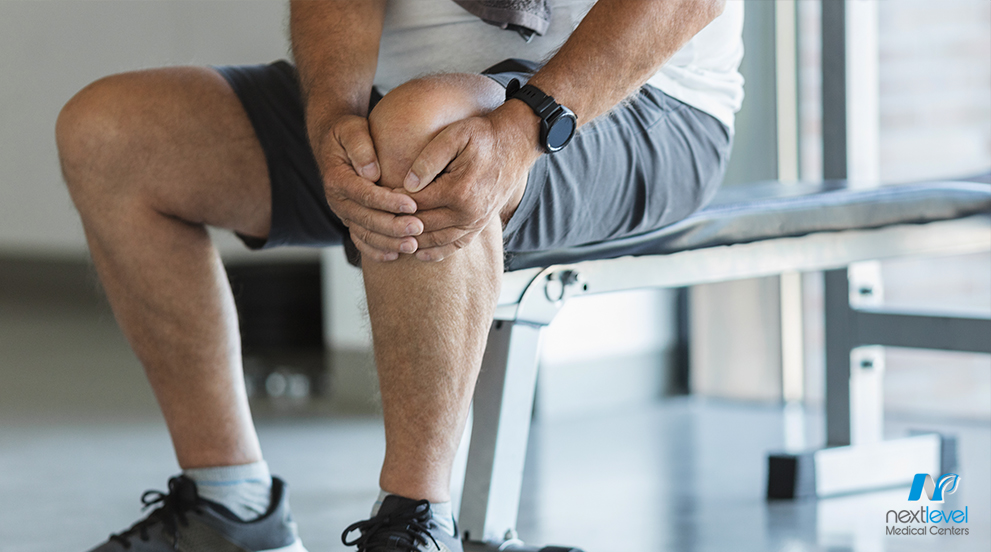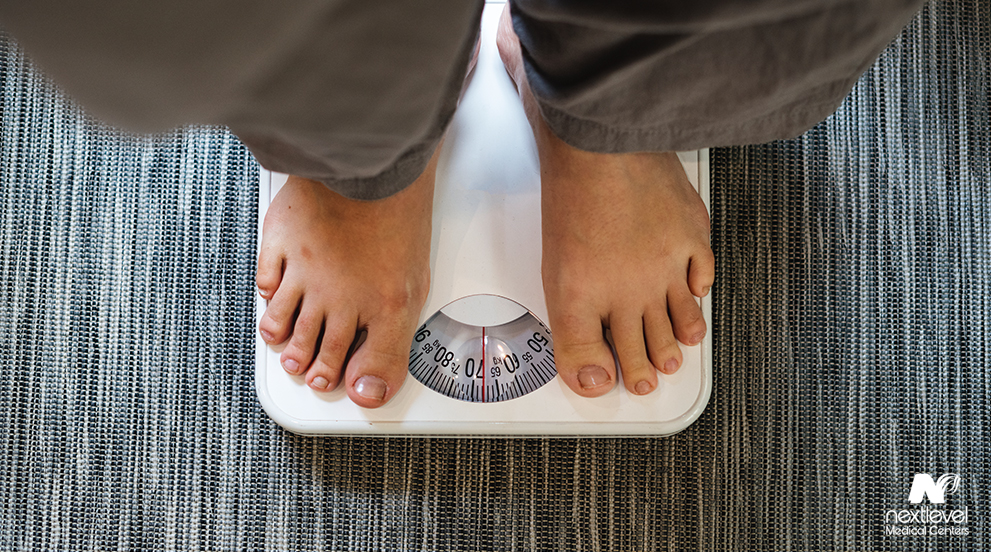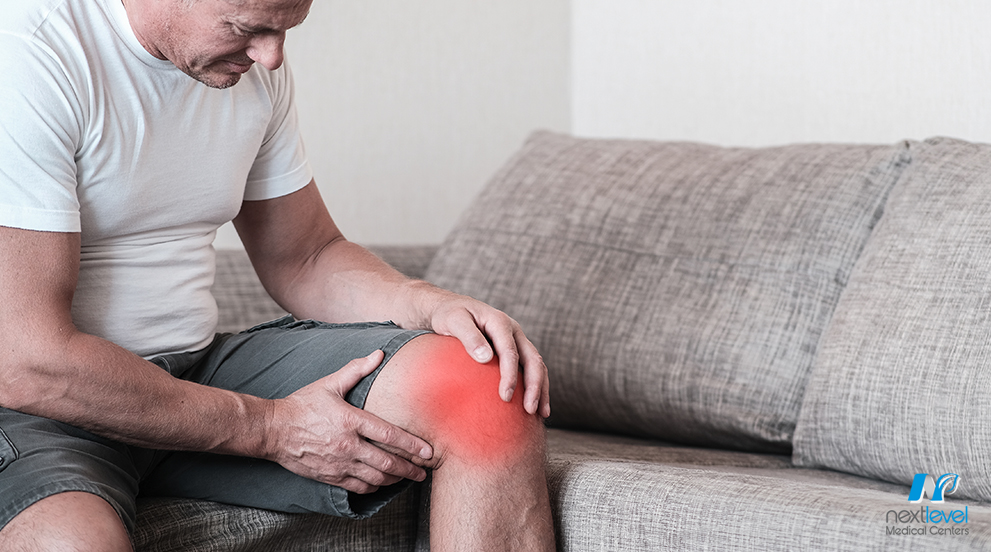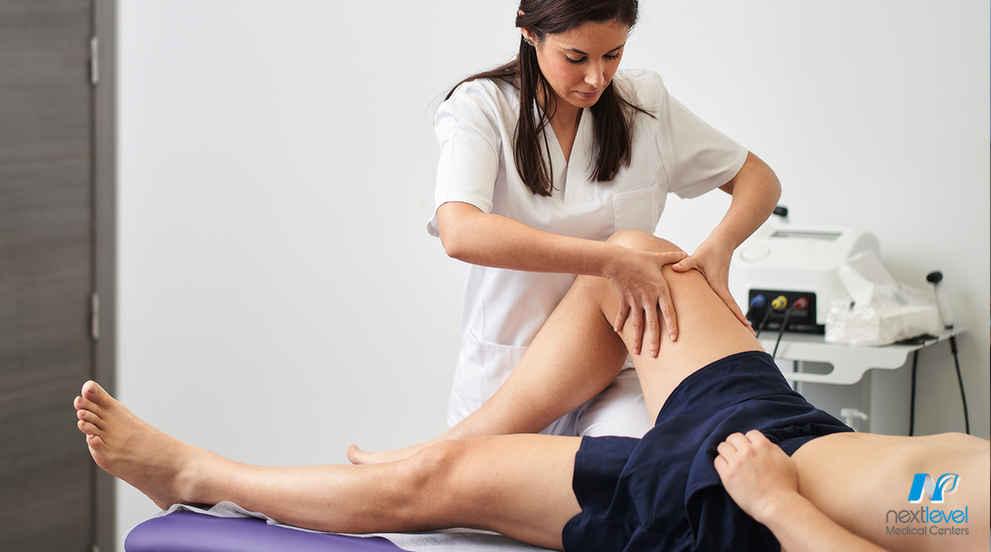Physical pain is easily the most common affliction a human can experience, with some parts of our body being more easily affected. One of the most commonly damaged parts of the human body is the knee, which is largely responsible for bearing the weight of our bodies in conjunction with our backs and legs. While the human knees are extremely important parts of our anatomy, they are unfortunately fragile and susceptible to severe damage.
When our knees are damaged too much, it becomes impossible for us to function or move properly. When something so important is equally fragile, it becomes necessary to understand what can impact the integrity of your knees. One factor that probably will not come as a surprise is weight.
Weight, more specifically obesity, is a serious issue plaguing the citizens of the United States of America. It is hardly surprising that obesity is a major issue for so many of its citizens in a country that all but runs on fast food. What many people overlook is that the issue of obesity has a resounding effect on the health of our knees. While excess weight can impact the amount of pain you feel in your knee, you might wonder if losing that weight can relieve the pain similarly. Weight loss might help relieve the pain you are experiencing in your knees so you can return to life as you knew it.
How Does Weight Affect Knee Pain?
Before we can assess the effects of weight loss and pain relief, we must understand how excess weight can strain your knees. The human body, as resilient as it is, has limitations to what it can withstand before it starts to wear down. Ordinarily, our bodies are coping with strain from heavy lifting or even the idle gravity of the planet. Unfortunately, our bodies are also responsible for holding up our weight so we can function without collapsing into a blob on the ground. When our body weight exceeds normal levels, it puts undue strain on the body, which can weaken the knees.
When our knees are subjected to additional strain, it opens the door for chronic health issues to arise and cause pain beyond mere pressure. Osteoarthritis is one of the most common diseases that will likely affect your knees due to weight gain. Arthritic diseases are increasingly common in the country, and the effects can ravage the knees. The correlation between obesity and osteoarthritis has been proven via scientific studies. These studies show that of the American citizens who fall within a healthy weight, only 3.7% have osteoarthritis in their knees.

The term “healthy weight” might seem subjective, but it is qualified via the body mass index (BMI). Americans with a BMI of 18.5 to 25 are considered healthy by medical standards, whereas those who fall below that range are considered underweight. This means that those with a BMI over 25 are overweight. The same study that found the connection between healthy people and osteoarthritis discovered that 19.5% of patients with a BMI between 35 and 39.9 (grade 2 obesity) have osteoarthritis.
While osteoarthritis is a major source of knee pain, it is not the only way weight can impact your knees. The sheer weight of your body is enough to inflame and otherwise weaken your knees, making it difficult for the bones to support you. Eventually, your body starts feeling the pressure, and the pain can be difficult to cope with or function through. This means finding a way to relieve the strain on your knees by taking the pressure off them and giving your body a chance to recover.
Does Weight Loss Help With Knee Pain?
While weight might contribute to your knee pain, you might not think that removing the weight is enough to eliminate the pain. You are correct in this assessment to a certain extent since osteoarthritis cannot be resolved by shedding a few pounds. However, weight loss can help minimize the pain you endure because of osteoarthritis. It can also provide superior relief for knee pain caused exclusively by the weight straining the durability of the knees. Losing weight is beneficial for alleviating pressure from the knees, so the pain is not constant.
Every pound of body weight equals 4 pounds of pressure being placed on the bones in your knees. This math means your overall body weight is four times heavier on your knees, but it also means every pound lost is 4 pounds of pressure relieved from your knee joint. Losing as little as 5 pounds takes 20 pounds of pressure off your knees and prevents any pain associated with that pressure. This can be extremely useful for those who do not already have osteoarthritis and still offer relief for those who do have the condition.

The American College of Rheumatology/Arthritis Foundation has stated that losing as little as 5% of your overall body weight affects your knee’s health. Losing 5% of your body weight helps improve knee function and even promotes better results from pain treatment. Losing weight helps minimize the general wear and tear on your body, allowing you to recover more effectively since there is no additional damage. The weight loss can even slow the rate at which osteoarthritis progresses. The more excess weight you lose, the slower the disease progresses.
A published study by one Dr. Elaine Husni found that losing 10 pounds slows the progression of osteoarthritis by as much as 50%. This means that the risk of osteoarthritis is a little more malleable than we initially thought, with the risk factor being altered by the body weight of the at-risk patient. It all comes down to the fact that your body weight directly impacts the pressure placed on your knee joints at any given moment. Keeping that pressure at a minimum means there is less general wear and tear that might put you at risk of developing osteoarthritis.
While osteoarthritis is a major cause of knee pain, it is not the only one. Other causes need to be considered if you want to minimize your knee pain. Some factors have a greater relationship to body weight than you might imagine.
Body Weight and Inflammation
One of the biggest sources of pain and discomfort, in general, is inflammation. While inflammation is a painful and irritating response to injury or illness, many people overlook that it is our body trying to heal us. Inflammation is our body’s answer to damage as it attempts to repair the body, leaving us fairly sore as we recover. Inflammation, as frustrating as it might be, is essential to our body’s natural healing process. Unfortunately, that same healing process can lead to complications if it never fades.
The wear and tear that can impact our knees and cause osteoarthritis causes the bones in the knee to grind against each other. This leads to pain and inflammation as our bodies try to repair the damage. Doctors originally thought that inflammation resulted from osteoarthritis manifesting in the damaged knee, but recent research implies that inflammation is a risk factor rather than a symptom. If your knee joint is damaged and your body triggers the inflammation process, it can cause the risk of osteoarthritis and other degenerative diseases to rise.

Keeping your inflammatory response in check is just as important for keeping your pain levels low. It is possible to control your inflammatory response through physical activity, but your weight also affects the severity of inflammation levels. Subsequent studies have determined that individuals who lost weight had reduced inflammation levels and were less prone to the associated pain.
Specifically, a review of multiple studies found that patients who lost an average of 2 pounds a month for up to 2 years showed decreased inflammation markers. These lowered inflammation markers meant the inflammation they suffer as a result of injury or illness is not as severe. As a result, knee pain is equally less severe and can be managed more effectively. Weight gain has been linked to increased levels of C-reactive protein (CRP), one of the body’s key inflammatory markers. By losing weight, the CRP levels of the body decrease, and you will not have to worry about inflammation half as much.
Losing weight for the sake of your knees might seem like a fool’s errand on the surface. However, weight’s effect on the human body is far more severe than most people are willing to admit. Even when you shave off a few pounds, it sometimes takes a little more effort to recover the full functionality of your knees after coping with chronic pain for an extended period. Fortunately, there are resources for that.
Pain Management
While losing weight plays a significant role in managing knee pain, other tools are available to help you manage pain and recover from the effects of the pain. Often, it becomes important to take advantage of physical therapy clinics and exercises to help promote your body’s recovery. Physical therapy is generally used to mitigate pain, even in the knees, but it can also play a minor role in helping manage weight. Certain physical therapy clinics help tailor lifestyle and health routines that help stave off weight gain and reduce the pressure on your knees.
Most weight loss programs in physical therapy clinics are designed to jumpstart your body’s metabolism. Since the metabolic process dictates how quickly the body disseminates nutrients and fat, giving it a boost can be beneficial for losing a little excess weight. The less weight you have, the more you will be able to protect yourself from knee pain, as discussed in the previous segments. Additionally, using simple exercises helps restore functionality to the knees that are recovering. Physical therapy and the associated services can help you recover from any pain you might be feeling in your knees or anywhere else in your body.

A physical therapy clinic is not necessarily the best option for losing weight, as a major lifestyle change is often required to ensure results. The short-term effects of metabolic enhancement are sufficient for giving it a slight boost so you can start shedding some of the weight causing your knee pain. It is easy to assume a physical therapy clinic can only provide treatment for athletes or people suffering from broken limbs. But, through some treatment, you can start reducing the pressure on your knees by tens of pounds at a time. Ultimately, the trick is making sure the provider you go through can offer the services you need to jumpstart your weight loss program.
Take Your Health to the Next Level!
Knee pain is extremely common and will likely affect you at some point in your life. The pain can make navigating day-to-day life very difficult without the proper treatment. Fortunately, most knee pain is not severe enough to warrant major or invasive medical treatment. Since weight plays a more significant role in knee health than the average person realizes, it is possible to alleviate your pain with a little weight loss.
Obesity is a common enough issue in the country that the majority of citizens fall into the category. This makes it more important than ever to take steps to keep your physical health in check. Physical health providers can assist with managing your weight levels through nutrition and physical exercise.

We at Ortho Integrative provide high-quality physical therapy and metabolic enhancement treatments. Our staff consists of trained physical therapists and doctors who can provide the services you need to recover. Knee pain management and metabolic enhancement are only a few of the services we can provide so you can enjoy a healthy life.
We know it can be daunting to face the prospect of seeking treatment from a new provider, but our only goal is to help you be the healthiest possible version of yourself. If your knees are in pain, do not wait for the situation to resolve itself. It can be easier than you know to lose weight and take the pressure off your legs. So, be sure to contact us today so you can take your health to the Next Level!




